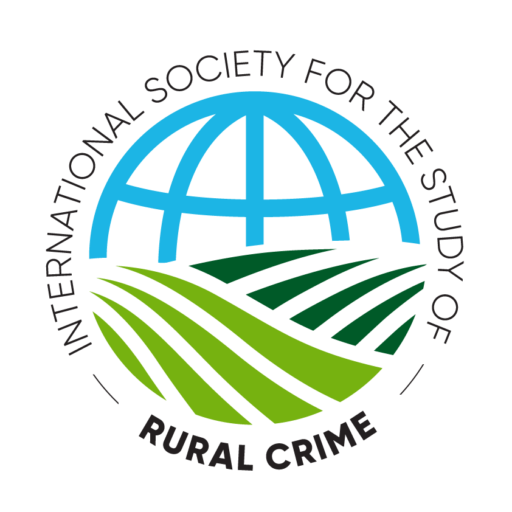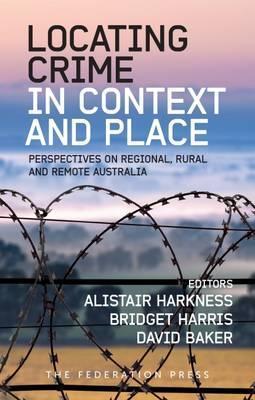ISSRC Blog
This blog provides an opportunity for pithy observations or reflections on topical rural crime news and developments, a summary of research, promotion of publications, advertisements for upcoming events… and more! If you would like to contribute, email a submission of no more than 500 words to admin@issrc.net
Bushfires in rural and regional Australia – Twitter auction of rural crime book and advice
(Post from ISSRC Secretary, Alistair Harkness)
Dear Rural Criminology colleagues
An appeal and offer. The bushfires in Australia are causing enormous devastation – for individuals, families, communities, wildlife and livestock. This is having an enormous impact on rural communities in particular.
Australia is burning, and assistance for our hardworking, tired and very brave firefighters is crucial.
An initiative has just arisen: #authorsforfireys
This is a Twitter based auction, so you need a Twitter account to participate.
Bridget Harris @DrBridgetHarris and I @AHarkness are offering a signed copy (and we’ll hassle our good friend David Baker for his signature as well!!) of our edited book Locating Crime in Theory and Place: https://www.federationpress.com.au/bookstore/book.asp?isbn=9781760020477
The book has twelve chapters from leading Australian rural crime scholars and four practitioner perspectives.
We are also offering our feedback on a paper or a book chapter – whether you are an established academic or an upcoming one, two extra sets of experienced eyes available for your work can only be good!
Highest bidder wins!
All the details of the auction here: https://authorsforfireys.wixsite.com/website
To our international friends – and even if you don’t have the highest bid – crucial donations can be made here: vic.gov.au/bushfireappeal
And for Australian colleagues, follow this link: https://www.cfa.vic.gov.au/about/supporting-cfa#donate-cfa
Other places to contribute, follow this link: https://www.abc.net.au/triplej/programs/hack/bushfire-crisis-how-can-i-donate-and-help/11839842
Thanks in advance for whatever generosity you might be able to offer.
Alistair
Latest issue of the International Journal of Rural Criminology out now
(Post by Joe Donnermeyer)
Volume 5, Issue 1 of IJRC is now available through the OSU Knowledge Bank or through the following links:
https://doi.org/10.18061/1811/88724 or https://kb.osu.edu/handle/1811/88724
This issue is a special issue, edited by Alistair Harkness, based on a rural-focused workshop attended by about two dozen scholars held in February, 2019 at the Gippsland campus of Federation University in Victoria, Australia. This workshop was funded by The Academy of the Social Science in Australia, with participants coming from many different universities and an equal diversity of disciplines. To quote Alistair Harkness from the editor’s introduction:
“This Workshop, I believe, serves as an exemplar of the unity of purpose of cross-disciplinary, cross-jurisdictional colleagues with an interest in improving circumstances and outcomes for rural communities, and perhaps might be a model that could be replicated in various other jurisdictions.”
I hope you enjoy reading all of the contributions over the holidays.
When farmers become criminals – heroes or zeroes?

Post by Willie Clack (Department of Penology, University of South Africa)
Folklore about rural life creates the idea of idyll and has been romanced ever since the urbanisation trend started in the 1800s and 1900s. The fact of the matter is that many people abandoned the rural idyll as they feared for their lives and envisaged a sense of safety created by towns and cities.
The rogue elements of social life in rural areas should never be ignored or downplayed. Research has shown that the effect of farm crimes has a much wider influence than the immediate environment of the farming operation and therefore legislation is adopted in society to protect not only rural communities but farming operations in regions, countries and globally.
In 1941, Hannah made the following remark concerning the legal education of farmers and students of agriculture: “They have a concept of law which lies somewhere between complete ignorance on the one hand and complete understanding on the other hand”. Hannah goes further to demonstrate that agricultural producers will only acknowledge legislation when it works in their favour but will deny the existence of the law if it places a burden on them.
In January 2019, South Africa had an outbreak of foot-and-mouth disease in Limpopo, which affected a small part of the farming communities directly; however all livestock farmers suffered indirectly as a result of the ban on exports. An action plan was put in place but irrespective of the preventative measures taken, a further outbreak of the disease occurred in November 2019. The November outbreak was the direct consequence of livestock producers violating legislation punishable by imprisonment.
Needless to say, no criminal charges have been laid – due to non-compliance with legislation, the perpetrators are not identifiable.
Actions taken by government was to place restrictions on the movement of animals and a ban on the gathering of animals from more than one farm, and in effect, the hosting of auctions in four provinces.
Irrespective of the ban and pleas of organised agriculture, some auctioneers decided they will not abide by the restrictions of government and hosted auctions. This is not only a violation of legislation but an act that can result in the whole livestock industry of South Africa being destroyed. These acts by farmers to support and to host auctions are forbidden by legislation regardless of possible criminal and civil liability.
Today you may be the hero who rebel against government and their attempts to control a disease, but tomorrow, you will be zero if a whole industry is destroyed by your rebellious actions.


